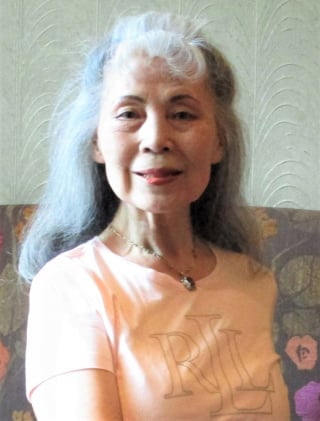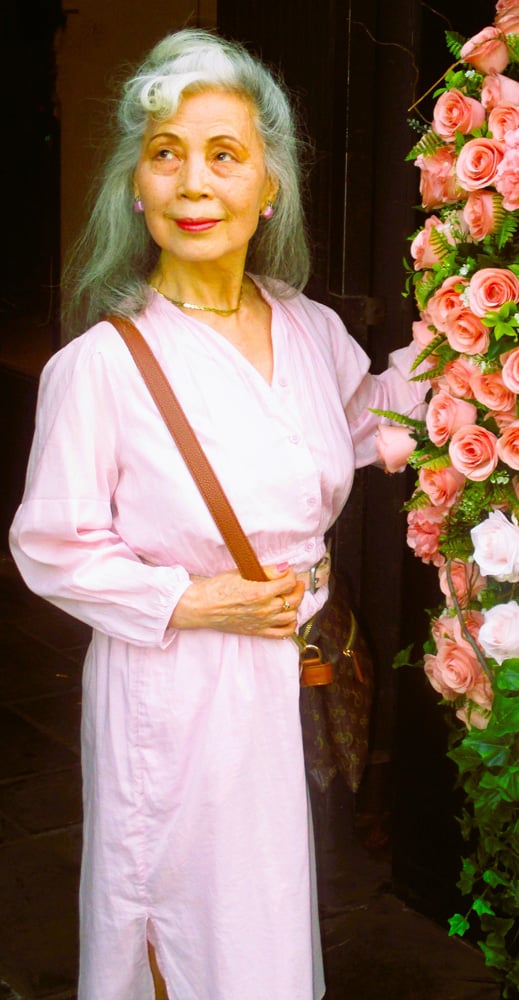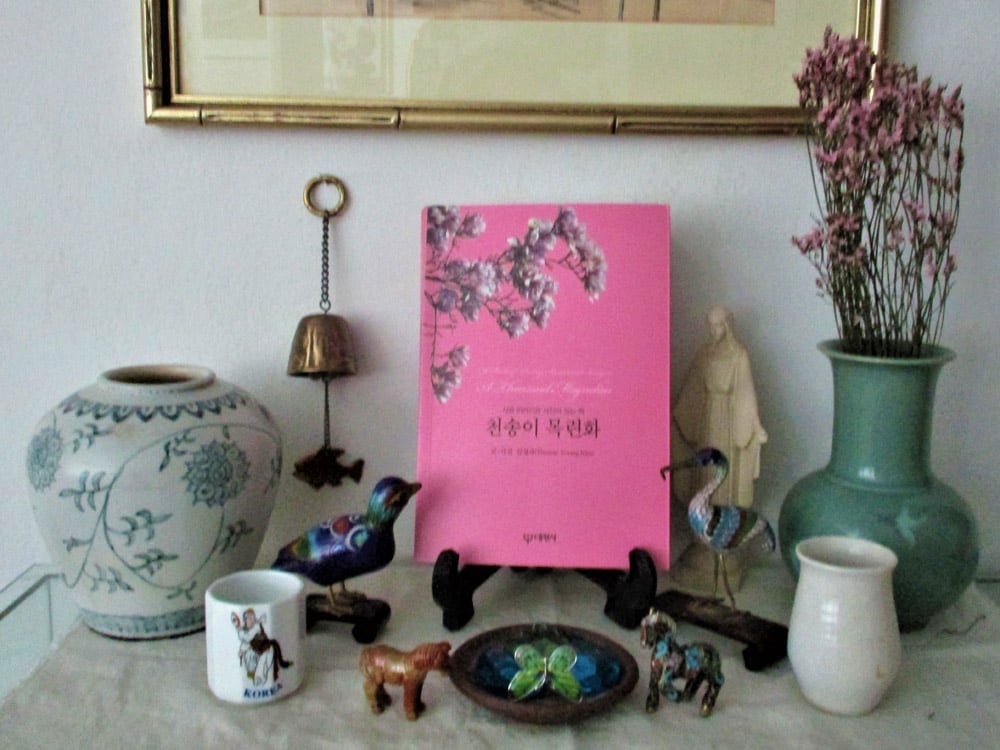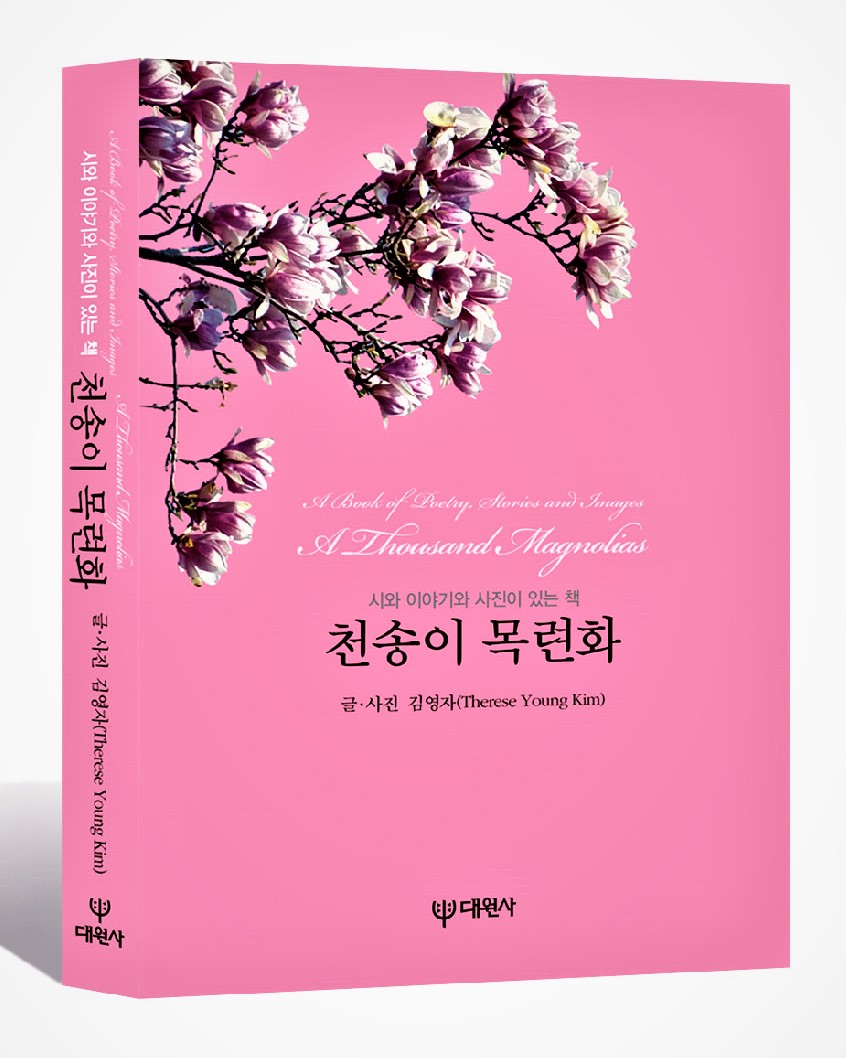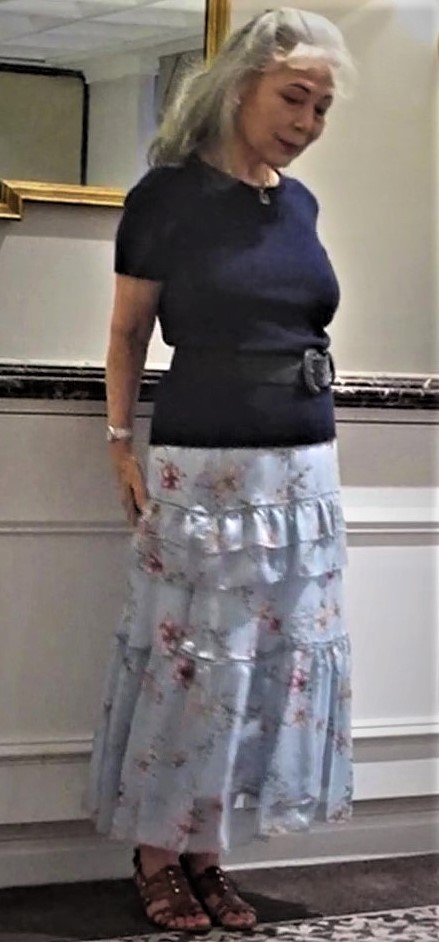A Stranger’s Touch of Blessing
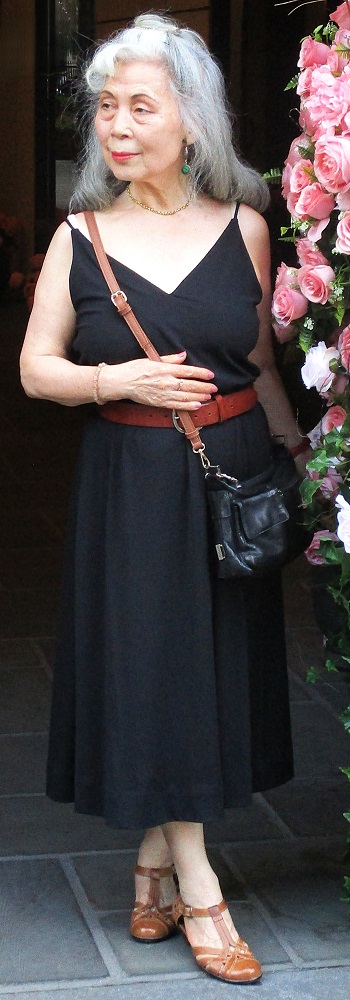
In the zenith of Manhattan midday hour, the air is thick with summer haze from bus fumes, yellow cabs, trucks, and whatnot, while the pedestrians are rushing down in all directions on the sidewalks. As I stand on the curb waiting for the light turn green, I hear a thin soprano from behind, “hello, pretty?”
I don’t turn around thinking that a woman is talking to someone on her cellphone as many do; besides, I am not a pretty one.
To my surprise then, I see a woman approaching and standing next to me. She is a tall, middle-aged lady in her spiffy white slacks and a canary-yellow jacket. Her honey-blond short hair looks neatly coiffed as if just done at a hair salon.
“Pretty,” she smiles standing like the Statue of Liberty and askes, “Can you guess how old I am?”
I look at her hiding my surprise behind my slow and gentle smile.
“Hmm…” I tip my head from one side to another, giving her a look of genuine consideration, remembering that she is the lady who just called me pretty.
“I’d say no more than fifty-five, Ma’am,” I offer a number less than my estimate.
“Thank you, pretty. I am seventy years old … Can you tell?” She beams and stands on her tiptoes, stretching her height.
Realizing I’m a year older than the lady, I say, “No, Ma’am, certainly not!”
“Thank you, dear.” She flashes a toothy smile. “I’m attending a geriatric health conference right there at Hilton Hotel. They want me to deliver a speech about my excellent health and longevity. I was picked from a handful of seniors with good genes!” She elaborates
with an air of justifiable pride.
“I am impressed. Congratulations!”
“You see, I was raised with five siblings, not drinking or smoking, only with a healthy diet! We all have kept the good habit, and it has kept me in great health!”
“Wonderful indeed, congratulations!”
“Thank you, dear! Oh, the light just turned green, but here, hold my hand! I’ll give you my good health and energy!” She extends her long slender fingers as if ready to throw a spell on me.
Surprised again and moved by her kind offer, I slip my hand into hers when she gives it a quick squeeze, not unlike a burst of blessing, and turns away waving a goodbye.
Too dazed by what just happened, I remain on the curb waving and watching her cross the Avenue of the Americas. Upon seeing how thin and frail she looks from behind, I strain my neck watching her, regretting I should have held her hand and walked with her; but thankfully, she is trotting on like a pro.
Relieved to see her roll away safely through the revolving door of Hilton I sink onto my heels, thinking, perhaps, only perhaps, the lady needed my blessing as much as she wanted to blessed me. At the changing pedestrian light, I start to walk, admitting to myself that we all can use the blessing, including those who are already blessed.
Written by © Therese Young Kim
Photo Credit: Konrad Monroe
"천송이 목련화 (A Thousand Magnolias)," a book of poetry, stories (in Korean except for three poems), and images.
Image provided by Daewonsa, the publisher of “천송이 목련화 (A Thousand Magnolias)”
Photo Credit: Konrad Monroe © Therese Young Kim | Dear my visitors around the world: Subliminally, I have been chasing the illusions of peace and beauty in all seasons of my life, in the sun and moon rising from the East Sea and the lonely island of Dokdo of my old country, over the Pacific and the New World where rainbows looked more stunning and colorful beckoning me to come. I have journeyed through the age of innocence, delicious happiness, war-ravaged, toiling with work, fleeting romance, pleasure and pain of marriage and divorce, and now piled up with years of my age of an ancient woman with a mess of silver hair, impersonating an old pigeon. While studying in Seoul, Korea, I fell in love with English and French for their beauty of flexibility and fluidity. Although my French fell behind, it introduced me to sublime French impressionism of Monet, Manet, Flaubert, Emile Zola, and Baudelaire’s “Paris Spleen,” to name just a few. While studying English literature I discovered Hemingway, DH Lawrence, Thomas Hardy, Ralph Waldo Emerson, Chekov, Tolstoy, and Rainer Maria Rilke in English translation, as well as the music of Bach, Chopin, Mozart, on and on. At the same time, I’ve retained my native language, Korean, with its purity from an archaic culture, in which I was born, raised, educated, and loved. Miraculously then, came the publication of “천송이 목련화 (A Thousand Magnolias)” this May, which I humbly present here with my little figurines, including Korean ceramic vases and a mini bronze bell in celebration of this debut. “천송이 목련화 (A Thousand Magnolias)” is a bouquet of flowers I’ve gathered from the Garden of Arts and Literature indicated above, which also enabled me to write in English as well. Referring myself as an “ancient woman” has a double entendre in that I remember the legacy of my Old Country where the world’s very first movable metal type was invented in 1234 in Heungdeoksa Buddhist Temple in Chongju City, known as the city of education and culture in South Korea. Thanks to this printing technology, numerous books of Buddhist teachings have been published for centuries, the first of which was called “Jikji,” meaning straightforward and honest communication in the teaching of Seon meditation. During the golden age of Korean Buddhism, countless artifacts and national treasures had been produced before they were looted and pillaged by Japan during their invasions culminating into the brutal annexation of Korea from 1910 through 1945. In September 2001 UNESCO formally designated “Jikji” as the very first manuscript printed in the world’s oldest metalloid type in Korea. As the author of “A Thousand Magnolias,” I owe profoundly to those voiceless and courageous Korean immigrants I met while working as a court interpreter in New York and elsewhere, for the resilience and grace shown in their plight for American dream. But first and foremost, I owe to the memory of my late parents’ undying love and sacrifice, which is the spirit of this book. I’ve gifted the book to my extended family and friends living near and far and donated three books to the Asian language acquisition department of New York Public Library, and I hope to gift more to Korean language departments in universities or libraries outside Korea, if opportunities come by. Dear cherished visitors, thank you so much for your kind attention given to this post, and let me close with a title poem, “A Thousand Magnolias,” sending you my endless blessings to you and your loved ones! |
A Thousand MagnoliasPalms gathered onto my chest When I became a toddler Now grown into a life of my own I’m cradling a thousand magnolias © Therese Young Kim | 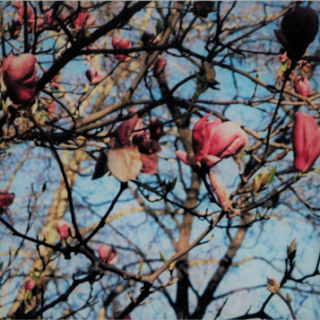 | 천송이 목련화지금 내 두 손 가슴에 언고 나 좀더 자란 아기었을때 이제 내 생활터전 잡아놓고 아직도 보내지못한 천송이 목련화를 Poem, translation, photo |
The Diving Sun (Ember of Love) by Therese Young Kim
The Ember of Love - Meditation in the Sun
| Dear My Distinguished Web Guests: It has been nine months since the Coronavirus pandemic took us the prisoners of epic tragedy around the world, which feels more like nine years. But time rushes by as always and we are here like homecoming heroes from a war that is still raging. It makes us wonder what it is to have a normal life in the way we used to live, like breathing the air without thinking of it, or enjoy the sun shine on our bare faces, or walk around without distancing the strangers. A staggering number of deaths have occurred every day, patients dying all alone, separated from their loved ones. Feelings of pain and grief are universal while it can be self-healing with passage of time, as the memory of love ripens as years go by. I know because I was there once, albeit a long time ago, under different circumstances. ∞∞∞ When the sun is golden, I, like a sunflower, would breeze out of my cluttered apartment for the day. After fussing over the breakfast, I would check the email, make a call or two before getting dressed. Then I would pack my oversized laptop in my wheeled luggage with padded layers to protect from the bumpy Manhattan sidewalks, together with a small bag stuffed with my leggings for a gym visit. My laptop holds the world of my poetry, stories, and a novel, ‘Nayoung’s Journey,’ that were written years ago and still being edited or rewritten on and off. Some were conceived while I was roaming around, listening to the rhythm and cadence of the city crowd and the melodious sounds of foreign languages brushing by my ear. ∞∞∞ | 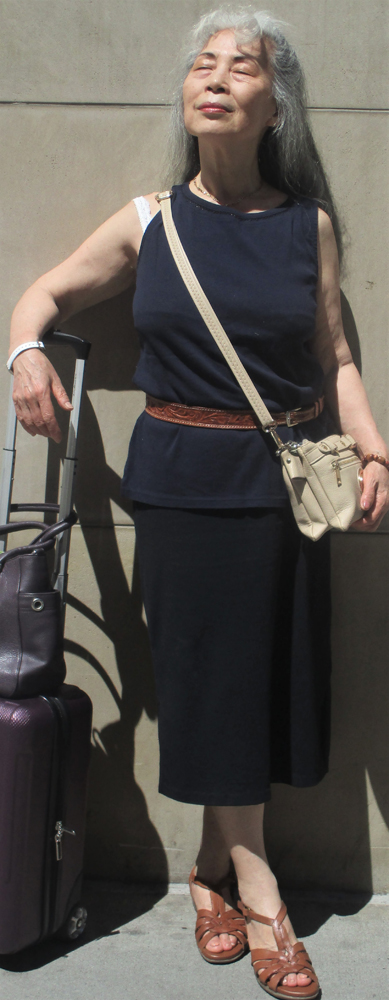 Therese in the Sunlight by Konrad Monroe © Therese Young Kim |
Dear Readers, your questions or comments posted here will be kindly honored.
Thank you.
|
|


